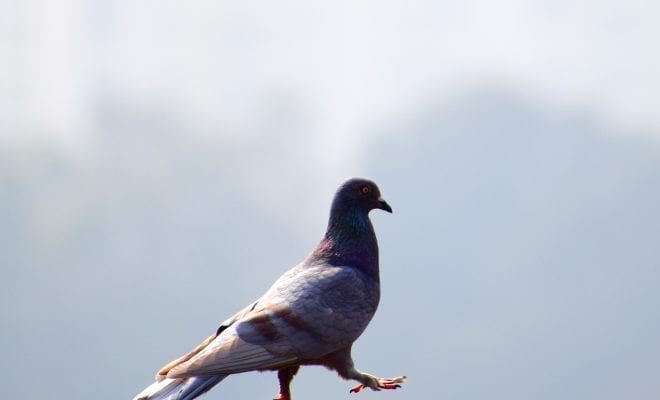
News
Tiny Backpack Wearing Pigeons are Helping Scientists Gather Climate Data
Pigeons just became the cutest little helpers in better understanding climate change. Scientists at the University of Birmingham in the U.K. have developed a tiny set of sensors resembling a small backpack that can be strapped onto the back of pigeons. These little sensors are proving to be quite effective in helping researchers collect data on urban microclimates – the fluctuations in temperature, humidity, and winds that can have major effects on living in major cities.
In order to track down these data-gathering pigeons, researchers partnered with local volunteers who raise homing pigeons, a species of common pigeon that are bred specifically for their ability to find its way home. Once loaded with their sensor backpack, the birds are released to roam freely. As the birds return to their lofts, the sensors are retrieved and the data is downloaded.
Data collected from these backpacks include temperature, humidity, ambient light information, GPS location, and even air pressure. This has provided researchers with unprecedented insight into how climate change and air pollution are affecting major cities. This data can be used to make more informed decisions about where to build new infrastructure, as well as develop better policies for climate change and adaptation in major cities.
Thomas tells Gizmodo that the bird owners are given full discretion on whether they want to allow their birds to fly or not. “The welfare of the birds is utterly paramount,” he says.
So far, the pigeons used in the project have logged a combined 41 flights and covered almost 1,000 kilometers. While there are plans to eventually expand the project, it will require more birds and more funds, the former of which are slightly harder to come by than expected. Thomas tells Gizmodo, “[Pigeon keeping] is not as popular as it once was, which is a bit of shame.”
Eventually, he hopes to develop a solar-powered sensor that will be able to wirelessly transmit data. This will allow him to equip these data-collecting sensors to wild birds. This concept spells out a number of exciting possibilities for the future of climate change research, and could potentially result in further understanding on how we can better combat air pollution.





0 comments